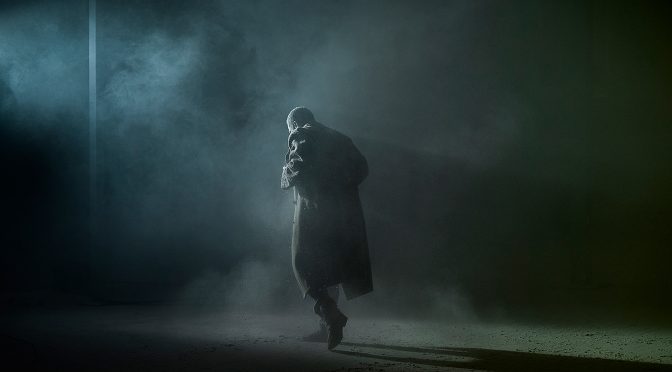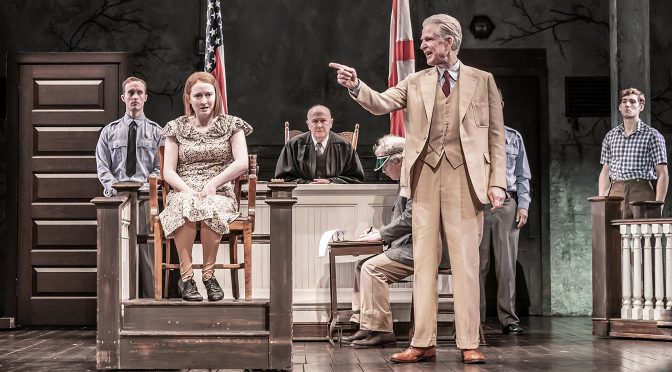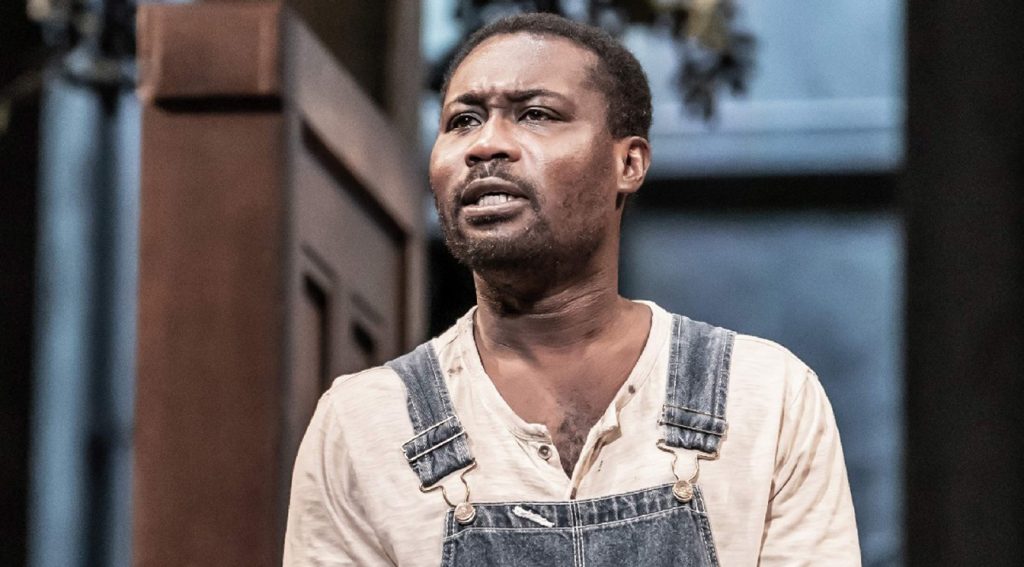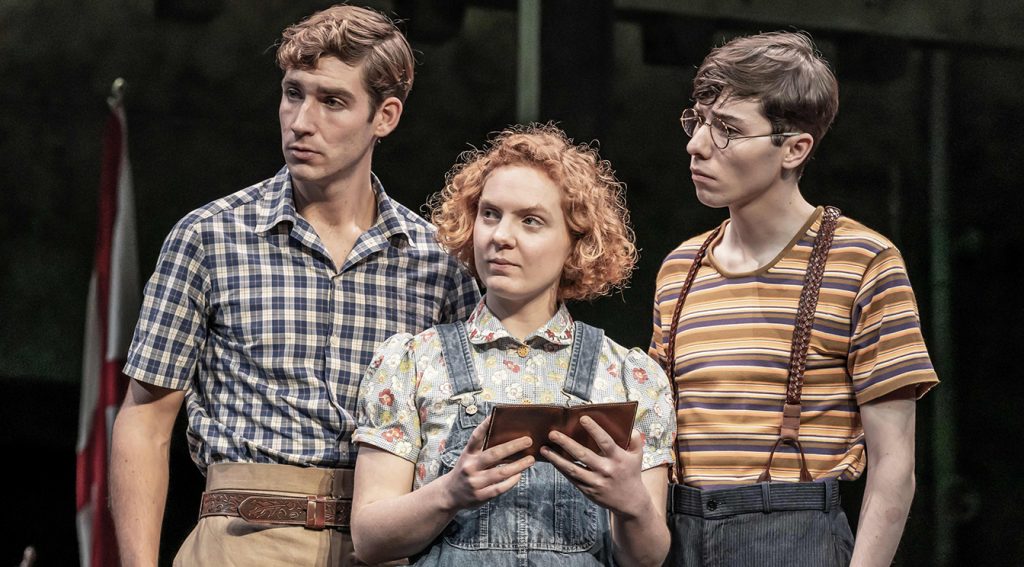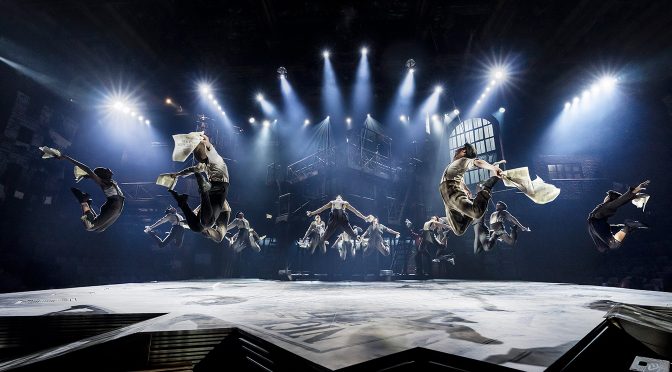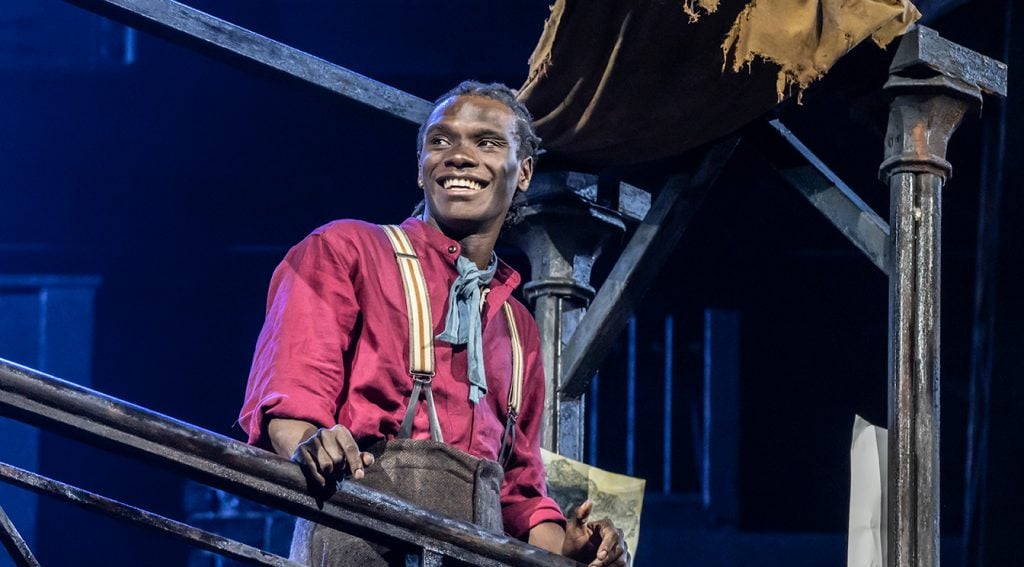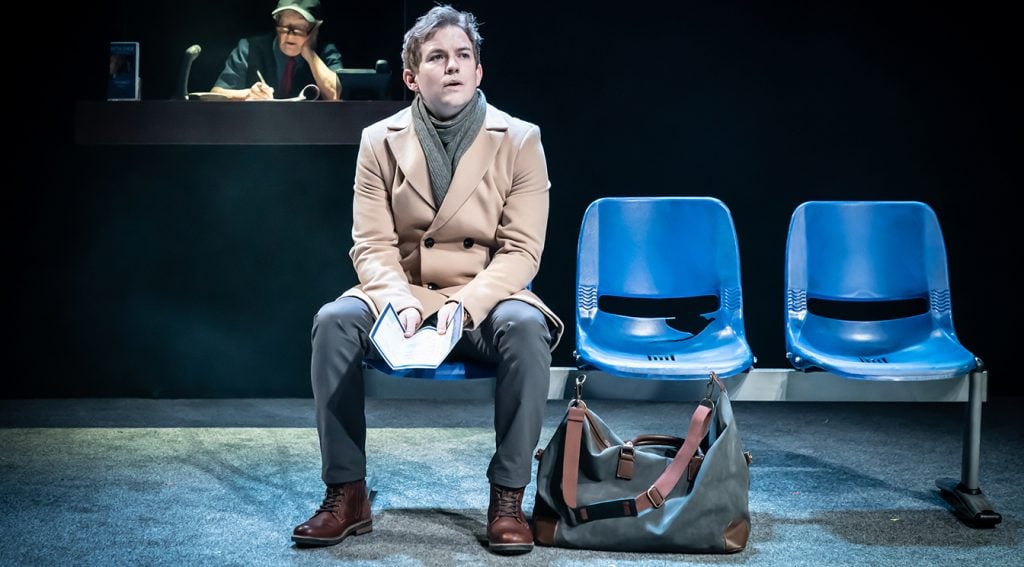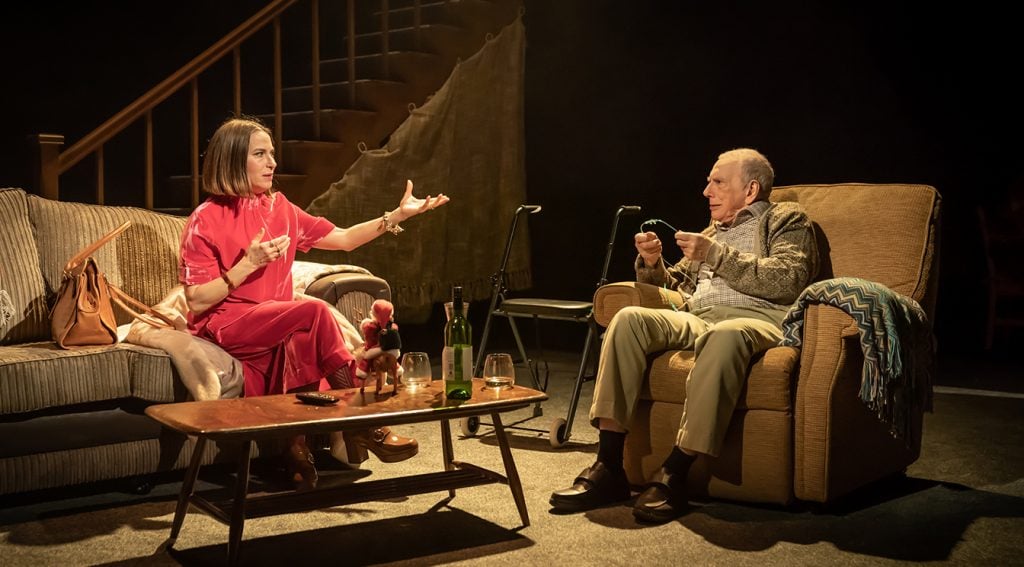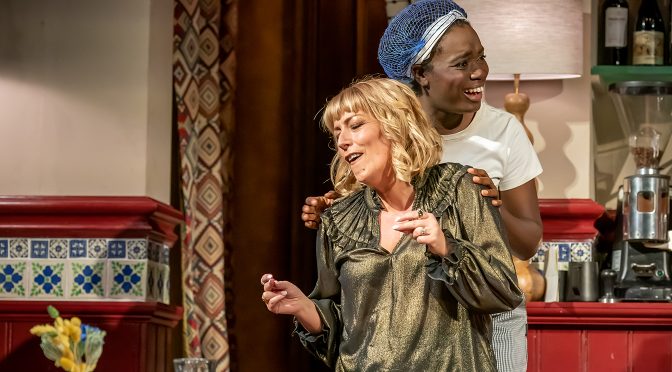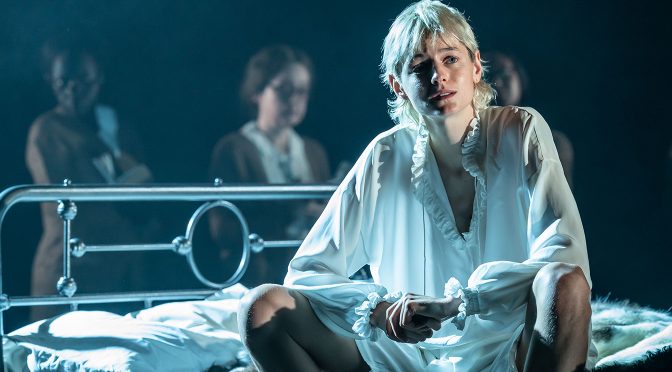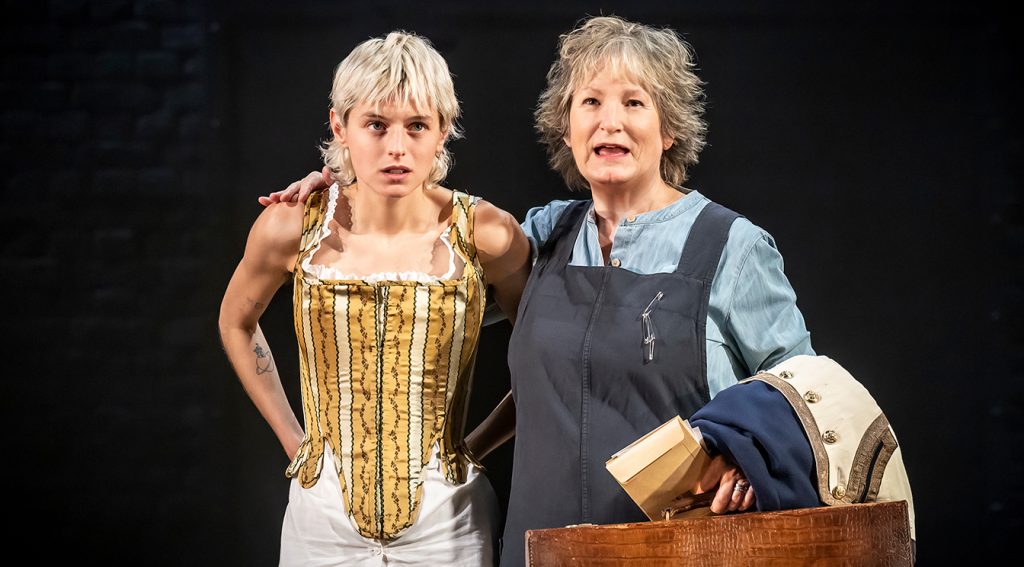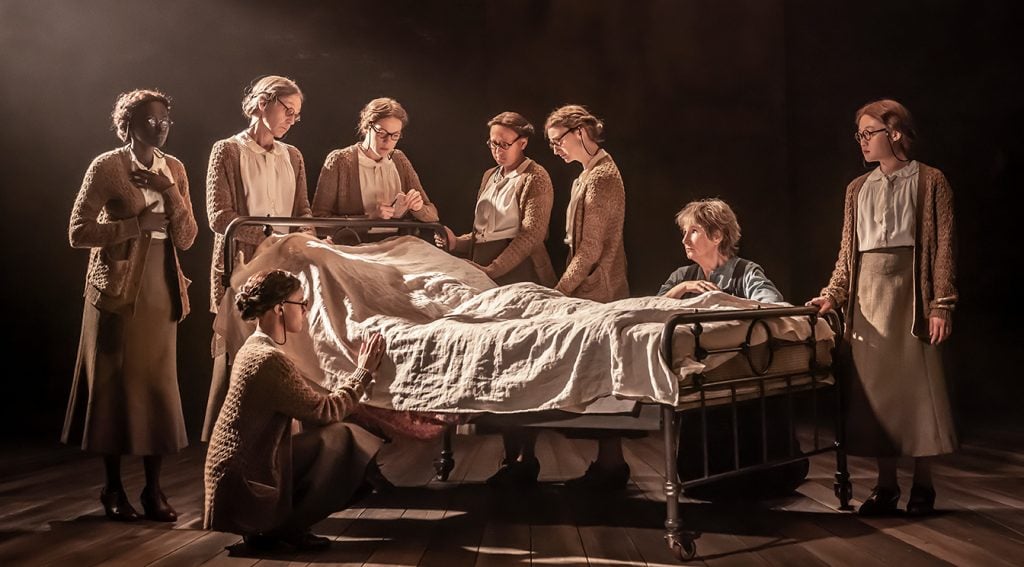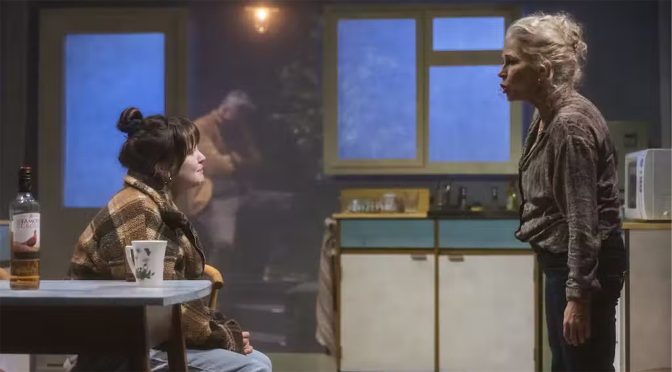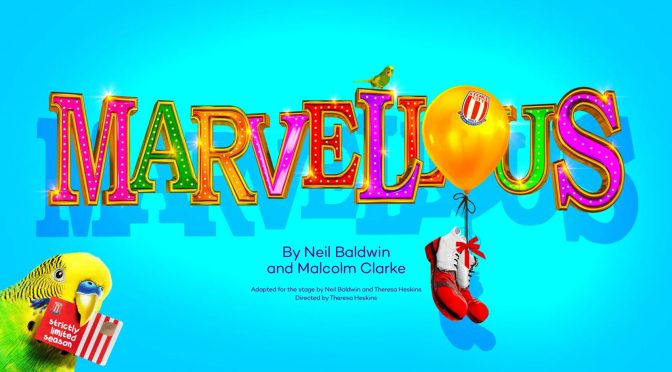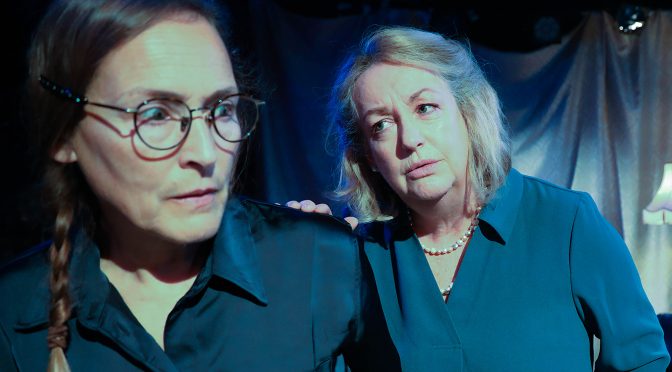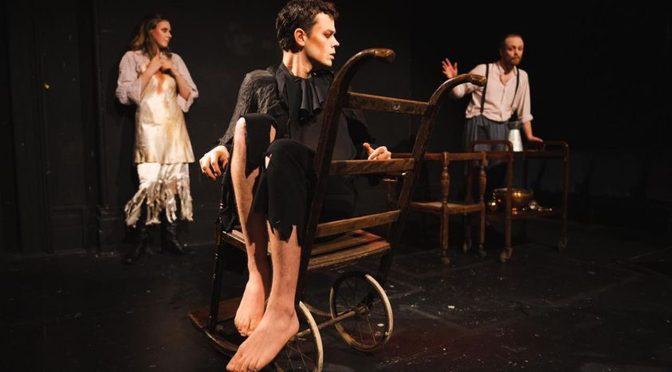Nobody does immersive theatre like Punchdrunk. Frankly, the company puts many others using the term to shame. Working from their new home in Woolwich, the latest show from directors Felix Barrett and Maxine Doyle has been one of the theatrical highlights of 2022. It’s kind of impossible to write about it… which is one of the things that makes it so great.
It’s been a long time since Punchdrunk’s previous large-scale show, The Drowned Man, wowed audiences. This time the source material is better known – it’s the Trojan War. The scale is huge: you can wander around Troy and the Greek camp, see the battleground and the Underworld. Or not… Remember, each experience is individual; you visit at your own pace and explore what you want, so following the story isn’t as important as the overall experience.
What you are guaranteed is some fantastic dancing; the choreography by Doyle and the performances are excellent. Some of the gymnastics are astonishing given how close the audience can get to the action. And the acting is fantastic (note, not a word is spoken). Much of The Burnt City is disturbing, it’s about a war after all. And it is also creepy. There are lots of ghosts as well as gods. And characters don’t quite seem to die… hang around if you think a ‘scene’ has ended.
The famous theatrical masks that are a Punchdrunk trademark are still used. They are key, transforming the crowd into a character. With your vision impaired, it’s a unique way to feel yourself part of an audience and anonymous. But the masks are also uncomfortable. It can’t be described as a pain to see something this phenomenal… but a word of warning, it’s good to be nimble and the experience can be overwhelming. The lighting, also designed by Barrett, with F9 and Ben Donoghue is key. It is predominantly dark, to add to your trepidation, but how attention is guided by spotlighting is eerie.
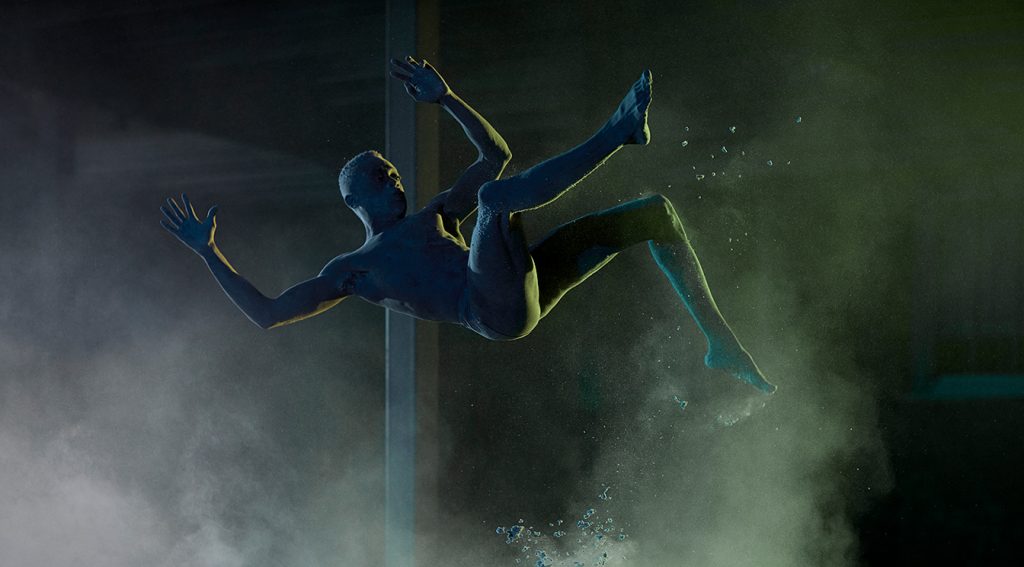
There is a temptation, and an invitation, to follow a particular character but that can be a challenge. One-on-one encounters are very much in evidence, with audience members plucked from the group right from the start. It’s brilliantly done (and it’s a top tip not to get hung up about staying with whoever you went with) but I’m not sure I’d want to be singled out – all the encounters are singularly intense, and the show often borders on the uncanny and discomforting.
The enormous venue is a cleverly designed maze – the work of Barrett, Livi Vaughan and Beatrice Minns is awe inspiring. The details are astonishing and, yes, you can pick things up but put them back where you found them. There is the feel of a nightmarish funfair (actually, there is a funfair included!) and a heartrending sense of people displaced. The show can’t be said to focus – that’s down to the audience – but it is notable that civilians and women play a big part in this interpretation of the story.
One suggestion – a museum set up at the start is a pointer. Like the pots on display, the myths (and action) in The Burnt City are on repeat. Akin to characters in an illustration, they are atemporal. That might be another reason the characters don’t quite die, and I certainly lost track of time during my visit. It is all, frankly, disorientating. While following even one story is part of the fun, I’m not sure it’s possible without a lot of visits. Although plenty of trips would be no bad thing.
Promotional photos by Julian Abrams

